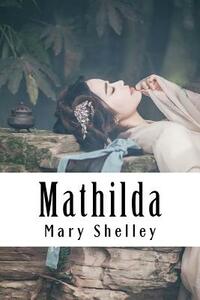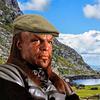Take a photo of a barcode or cover
medium-paced
Plot or Character Driven:
Character
Strong character development:
No
Diverse cast of characters:
No
Flaws of characters a main focus:
Yes
Graphic: Suicidal thoughts
Moderate: Incest, Suicide
dark
emotional
reflective
medium-paced
Strong character development:
Complicated
Diverse cast of characters:
No
Flaws of characters a main focus:
Complicated
dark
emotional
sad
slow-paced
Plot or Character Driven:
Plot
Strong character development:
No
Loveable characters:
No
Diverse cast of characters:
No
Flaws of characters a main focus:
Yes
It's not Frankenstein, but it was a good reading material.
It was dark, very dark, sometimes too dark, exaggerated. But then I started thinking that depression seems like exaggeration to others around and we have no idea what actually happens inside of one's head. And because it's only hundred pages, everything escalates pretty fast.
Got good quotes out if it.
It was dark, very dark, sometimes too dark, exaggerated. But then I started thinking that depression seems like exaggeration to others around and we have no idea what actually happens inside of one's head. And because it's only hundred pages, everything escalates pretty fast.
Got good quotes out if it.
dark
emotional
reflective
sad
slow-paced
dark
emotional
mysterious
reflective
slow-paced
Plot or Character Driven:
Character
Strong character development:
Complicated
Loveable characters:
No
Diverse cast of characters:
No
Flaws of characters a main focus:
Complicated
dark
sad
medium-paced
Plot or Character Driven:
Character
Strong character development:
Yes
Loveable characters:
Yes
Diverse cast of characters:
No
Flaws of characters a main focus:
Yes
dark
reflective
medium-paced
Plot or Character Driven:
Character
Strong character development:
No
Loveable characters:
Yes
Diverse cast of characters:
No
Flaws of characters a main focus:
Yes
"Yes, speak and, we shall be happy; there will no longer be doubt, no dreadful uncertainty; trust me, my affection will soothe your sorrow; speak that word and all danger will be past, and we shall love each other as before, and for ever."
(I'm not sure this is a story that can be spoiled, but there are some mild spoilers in the review? Idk, like the blurb says everything, but if you want pure experience don't read this...)
I wanted to read another [a:Mary Wollstonecraft Shelley|11139|Mary Wollstonecraft Shelley|https://images.gr-assets.com/authors/1699348762p2/11139.jpg] for the longest time and I can't believe it took me this long! It really is quite unbelievable... If you don't know yet, I feel an obligation to disclose at the beginning of this review that I'm obsessed with MWS, want to read everything from her, want to know everything about her, so really this review could never be objective and should be read as such. (This work also seems widely disliked, so I consciously decided to play the part of defense even though I have few of my own reservations.)

MWS finished this work when she was only 23 years old and it's her third work. By this point, she went through more than most of us do in twice so many years though one of the biggest blows, the death of her husband, is still two years in the future. (Though by this point, their relationship was such a mess that I'm not sure we can count it as a positive point.) MWS's works often mirror her real life in the strangest ways and so I'm slowly coming to the conclusion that she uses her writing as a way to process some of her real life feelings and experiences. That doesn't make her work autobiographical, I certainly don't want to imply that her relationship with her father was incestuous, but it IS true that it was very troubled and complicated, full of jagged feelings. MWS's work is full of problematic father figures (you know, that kind of is one of the points of [b:Frankenstein|12974171|Frankenstein|Mary Wollstonecraft Shelley|https://i.gr-assets.com/images/S/compressed.photo.goodreads.com/books/1546419388l/12974171._SY75_.jpg|4836639]...) and dead perfect mothers - and looking at her life, who would be surprised by this?
Though... it is certainly strange and interesting, that Mary who desperately wanted to be loved by her father, to be the first in his eyes, wrote a story about and excessive fatherly love... or maybe it isn't strange at all...
But maybe, I should speak about the book? Right?
I jumped into the boat, and well accustomed to such feats, I pushed it from the shore, and exerted all my strength to row swiftly across. As I came, dressed in white, covered only by my tartan rachan, my hair streaming on my shoulders, and shooting across with greater speed than it could be supposed I could give to my boat, my father often told me that I looked more like a spirit than a human maid. I approached the shore, my father held the boat, I leapt lightly out, and in a moment was in his arms.
The beginning of the book is set in Scotland which once more, really pushes the autobiographical reading before our eyes. Because as Mathilda is abandoned by her father with her aunt in Scotland, Mary (in her teens) was sent by her father & family to Scotland as well. And even though she came to love it and after her return to England kept walking around in tartan, which was highly unfashionable at the time, at least in the beginning, she surely thought of it as sort of exile.
Knowing this, looking at the quote I chose above... it really seems to me, like writing a wish fulfillment of a sort while also persuading oneself that it's better the way it is.
I'm sorry, I know the tartan story doesn't really have much to do with it, but it's simply so funny... I'm going to put this in spoiler, so... read only if you are interested...
Spoiler
We know about MWS's tartan frock only because [a:Thomas Jefferson Hogg|364229|Thomas Jefferson Hogg|https://s.gr-assets.com/assets/nophoto/user/u_50x66-632230dc9882b4352d753eedf9396530.png]'s retelling of one of the early MWS and PBS reunions and the detail is simply so ridiculous he couldn't come up with it! [a:Fiona Sampson|151222|Fiona Sampson|https://images.gr-assets.com/authors/1516044985p2/151222.jpg] writes (beginning of Chapter 3 from [b:In Search of Mary Shelley: The Girl Who Wrote Frankenstein|40374780|In Search of Mary Shelley The Girl Who Wrote Frankenstein|Fiona Sampson|https://i.gr-assets.com/images/S/compressed.photo.goodreads.com/books/1528031961l/40374780._SY75_.jpg|58003412] if you are interested):In nineteenth century, as in the twenty-first, London cares about fashion: Londoners have a quick and sophisticated eye for nuances of dress. And tartan is no nuance; in 1814 it's not even a cliché. The tartan industry will not take off for another eight years, until the state visit of George IV to Scotland.
Instead, the fabric is still rawly picturesque, and carries with it a faint association of rebellion. It's less than thirty years since the law forbidding the conquered Scots from wearing it was repealed. The daughter of Mary Wollstonecraft, and as someone whose own sister was born in the middle of the French Revolution, Mary is unlikely to have much hesitation in choosing which side in recent Scottish history to romanticise....
The passage continues to speculate that it might have also been a rebellious move against her stepmother who MWS hated which is the funniest way of teen rebellion I ever heard about. But.... let's get back on track...
What I'm trying to say in a very roundabout way is that I found the way in which MWS mashes together and recycles and reuses the same motives in different ways highly fascinating. Those would be: abandonment, orphans, bad fathers, glorious dead mothers & motherhood in general, Scotland, explorations of love, women's relation to the creation of narrative... and this is one of the pieces of the mosaic, so of course I find the book intriguing.
In the second point, I want to mention [a:Charlotte Gordon|535959|Charlotte Gordon|https://images.gr-assets.com/authors/1426802622p2/535959.jpg]'s interpretation of Mathilda, because I love it, even when I'm not entirely certain if it's partially not just wish fulfillment on her part. Gordon reads the body of MWS's work in conversation with her mother's [a:Mary Wollstonecraft|1853305|Mary Wollstonecraft|https://images.gr-assets.com/authors/1228515449p2/1853305.jpg]'s work and therefore reads most of her novels as feminist novels. Which... hard yes. Really, this reading has a lot of merit and I think she really captures the spirit of lots of passages. From that POV the interesting thing about Mathilda is that it's told from woman's point of view and only her POV, she remains unchallenged and her take on the story is the "true" one. Which is a great change from Frankenstein where only men get to speak (though Gordon has such an interesting take on that one too!). One of her main points is this:
As Wollstonecraft had argued in The Rights of Woman, women had no legal or political recourse when victimized by men. Mary Shelley dramatizes her mother’s point by demonstrating the havoc that Mathilda’s father wreaks in his daughter’s life. Unchecked male power is not only unjust, she suggests, it is dangerous for all involved.
And:
...without strong mothers and wives, the world is a dangerous place for daughters...
With which I wholeheartedly agree. She also tries to argue for Mathilda's moral superiority over her father and while this is partially true, I would still argue that... just read this will you:
In truth I am in love with death; no maiden ever took more pleasure in the contemplation of her bridal attire than I in fancying my limbs already enwrapped in their shroud: is it not my marriage dress? Alone it will unite me to my father when in an eternal mental union we shall never part.
The book really made me question what exactly is the transgressive part here. The view of sexuality in general changed a great deal throughout history and it is just leaving me... wondering and questioning. (I am really incapable of voicing this thought coherently it seems...)
Not the wild, raving and most miserable Matilda but a youthful Hermitess dedicated to seclusion and whose bosom she must strive to keep free from all tumult and unholy despair - The fanciful nunlike dress that I had adopted; the knowledge that my very existence was a secret known only to myself...
If someone made it this far, kudos to you! I can't seem to get to the point today... So, trying to sum my feelings up:
This is a Romantic book and therefore ridiculous in places (see the quote above) which... honestly, I'm kind of eating up, I like this over-the-top shit. And there is also part of me that is convinced that MWS writes it so over-over-the-top on purpose (but I might be wrong of course). But you know, the point is - the book is funny and also (if you didn't gauge it from my chaotic essay) interesting. I'm just fascinated... Overall, objectively it's probably not so good - it's quite slow for how long it is, overly dramatic and very extreme is some of its sentiments. But... still interesting!
I'm really glad I read this, I guess I should read [b:History of a Six Weeks' Tour Through a Part of France, Switzerland, Germany and Holland: With Letters Descriptive of a Sail Round the Lake of Geneva, and of the Glaciers of Chamouni|11394788|History of a six weeks' tour through a part of France, Switzerland, Germany and Holland with letters descriptive of a sail round the Lake of Geneva, and of the glaciers of Chamouni|Mary Wollstonecraft Shelley|https://i.gr-assets.com/images/S/compressed.photo.goodreads.com/books/1348554719l/11394788._SX50_.jpg|1048800] next, because I'm clearly (though unconsciously) doing a (mostly) chronological read of MWS works...






